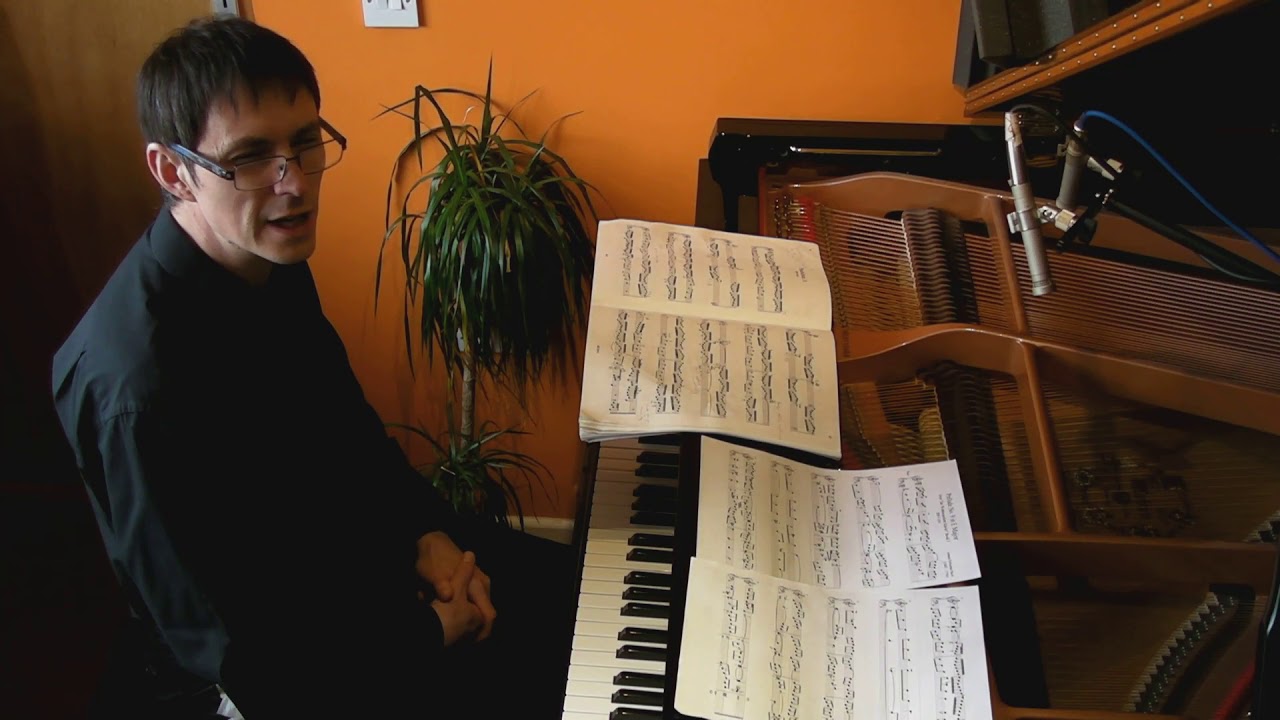Make of this what you will.
It’s OK as a 9-minute demonstration, if people are coming to this on piano.
A longer demonstration could have gone more into the way the various scales move melodically and in counterpoint, not merely fixating on the isolated sounds of major thirds when the music is static. Play inventions and sinfonias, and the suites and toccatas. Play fugues. Play chorales, listening to the voice parts melodically. Play cantata movements and the passions, improvising from the figured bass in the keys of the Chorton organ parts to hear what characters emerge.
Bradley Lehman
Play Beethoven sonatas, play Chopin, play Copland, Webern, Berg and Debussy. I’ve used Lehman on my modern piano for several years and it works just fine for all of those. The sound is more musically interesting than the uniformly harsh, equally colorless, major 3ds of equal temp, even in “12-tone” music. The solution is the same as with Bach: play horizontally, don’t obsess on isolated verticals. Any temperament sound bad that way.
The modern piano is in storage for a bit, while I figure out how to play my recently acquired fortepiano (style ca. 1835). I’m getting a lot more practice at tuning. Almost always Lehman, which works well for everything.
Nick’s reply is, for me, a typical example of the denigrating fashion in which so many UT enthusiasts speak of ET.
Major thirds in ET (13.7 c wide) are called “uniformly harsh” and “equally colorless”.
Continuing on that logic for a moment:
If ET major thirds are colorless, then the purer major thirds of an UT might as well be called “even more colorless than ET”. Yet, UT enthusiasts typically praise them as “sweet” or “harmonious”.
And conversely, if ET major thirds are “harsh”, then the wider major thirds of an UT might as well be called “even harsher then ET”. Yet, UT enthusiasts typically praise them as “spicy” or “colorful”.
So, ET major thirds are decried as a matter of principle, but any other major thirds, no matter whether they be wider or purer, are praised as a matter of principle.
To disparage ET, seems to have become a part of good UT manners. I perceive it as a hypocritical bias, and it grinds my gears no end. I find great beauty in a carefully tuned ET.
As the OP and the owner of this forum, I consider the post to be relevant and of interest, as the Lehman tuning is of great interest to many people. This forum is broader than just harpsichords. After all, we cover and allow talk on all early keyboard instruments including fortepianos (although not much comes up int that area) but if we stray into organs and pianos I have no objection at all.
Making comments saying a topic is a waste of time is out of order for this forum and uncalled for and utterly unconstructive.
And this is not a ‘chat space’. It’s a sophisticated forum for serious and learned discussion, if you don’t mind. [But you may be interested to know Discourse supports chat sessions between users, but I do not think anybody here uses that feature.]
Andrew, I don’t think any personal disrespect was intended. I also think it would be a perfectly reasonable opinion to say that the tone of the modern piano is so different from that of the instruments this forum is dedicated to that we don’t necessarily gain any insight into harpsichord temperaments from the exercise.
(You did also start the thread with ‘make of this what you will’, which is hardly a strong endorsement of anything the performer is doing.)
